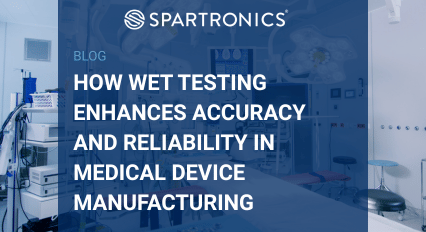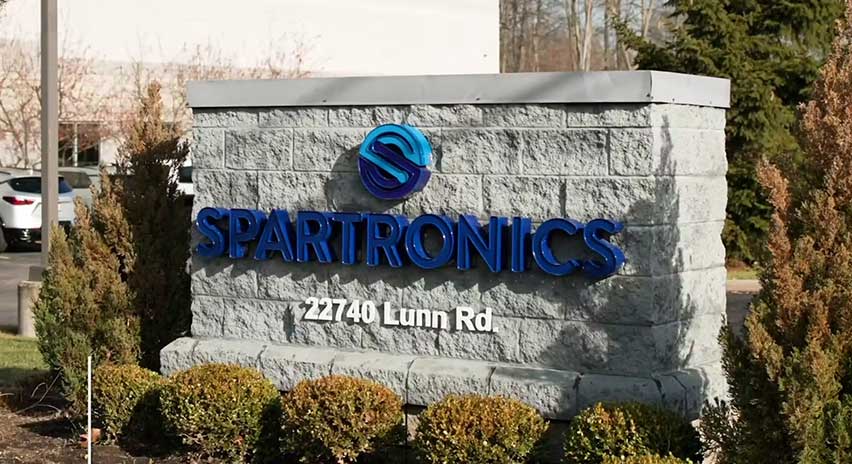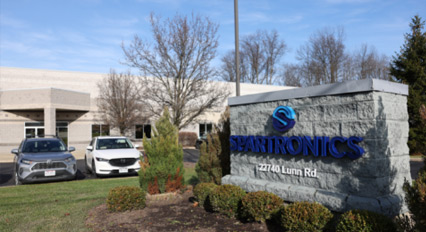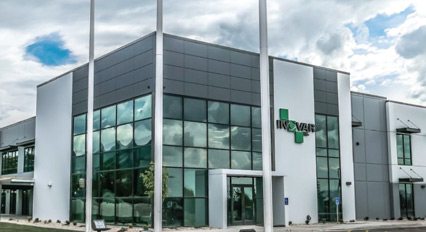What Are “Centers of Excellence” and Quality Certifications, and Why Do They Matter?
You’ve probably heard “center of excellence,” “ISO 13485,” and “FDA-registered,” but what do they really mean for a medical device manufacturer? Spartronics uses centers of excellence and quality certifications to build trustworthy, life-sustaining devices, but what does that mean for you?
What is a “Center of Excellence”?
A center of excellence is a facility or team with deep expertise and resources focused on a particular domain. At Spartronics, our Centers of Excellence are FDA-registered sites with specialized capabilities and staff for high-complexity medical device manufacturing.
These centers maintain strict process control, advanced equipment, and regulatory compliance to deliver consistent, high-quality products.
Why does a medical device company need quality certifications?
Because these devices are used to diagnose and treat life threatening conditions. Quality certifications act as third-party evidence that the systems, controls, and processes are trustworthy.
For example, Spartronics holds ISO 13485:2016 and ISO 9001:2015 certifications for its life sciences and medical device operations. Also, the company runs FDA/QSR (21 CFR Part 820) registered facilities.
These certifications help you demonstrate to regulators, hospitals, and customers that your device manufacturing process is controlled, traceable, and reliable.
What regulatory and industry standards does Spartronics follow?
Spartronics adheres to a wide set of standards depending on the market and product class. Some examples:
- 21-CFR820
- IEC 60601-1
- ISO 9001:2015
- ISO 13485:2016
- ISO 14971:2019
- MDSAP
How do centers of excellence and quality certifications impact risk and compliance?
These structures help reduce risk in multiple ways:
- Traceability & Recordkeeping: Every step in manufacturing is documented (Device History Records, Device Master Records), allowing issues to be traced.
- Process Validation: Critical processes (sterilization, coatings, assembly) are validated and monitored.
- Continuous Improvement: Certifications demand ongoing audits and corrections, which force defect reduction over time.
- Regulatory Readiness: With proper certifications, your submissions to the FDA, CE marking, or other authorities are smoother because your quality systems are already proven.
Do certifications guarantee quality or zero defects?
No, certifications alone don’t guarantee perfection. They are frameworks and tools, not automatic guarantors of flawless output. Even the most rigorous system can fall short without strong culture, active leadership, and relentless attention to detail.
However, when you combine well-established certifications with a culture of operational excellence, such as dedicated Centers of Excellence, continuous improvement processes, and enterprise-wide ownership of quality, you build a far more robust system of checks, balances, and performance.
At Spartronics, quality is a fundamental mindset shared by every employee. We emphasize that “Quality Is Everyone’s Job.” Our world-class quality is the result of “people, values, culture, systems, and technology.”
Here’s how Spartronics brings that to life:
- Certifications matter. With certifications such as ISO 13485:2016 (for medical device manufacturing), ISO 9001:2015, AS9100, and others, we have the structure to meet demanding regulatory standards.
- Manufacturing readiness reviews (MRRs), product readiness reviews (PRRs), advanced product quality planning (APQP) and traceability are built into our processes.
- We are accountable: a cross-functional team (project manager + engineers + specialists) ensures consistency from design through production.
- Process optimization and continuous improvement matter. We work on “continuous improvement and process optimization in the design and manufacturing of complex products and systems.”
- Traceability and documentation are built in: device history records (DHRs), device master records (DMRs), rigorous supplier management, and calibration processes all underpin the culture.
So, while certifications provide a necessary foundation, they aren’t sufficient on their own to guarantee zero defects or flawless quality. It’s the company’s commitment to rigorous process control, culture, leadership, and continuous improvement that makes the difference, and that’s precisely what we do.
How can a client evaluate a contract manufacturer’s centers of excellence and certifications?
Here are quick checks:
- Ask for copies (or summaries) of their certificates (ISO 13485, ISO 9001, FDA registration)
- Request details of past audits or nonconformities and how they were resolved
- Check which standards they follow by market (e.g., IEC 60601-1 for medical, AS9100D for aerospace)
- Look at their facility infrastructure: Do they have dedicated lines, quality labs, and test resources?
- Ask about continuous improvement: are there CAPAs, corrective actions, and change controls?
Having strong Centers of Excellence and Quality Certifications is not optional in medical device manufacturing; it’s mandatory for credibility, safety, and compliance.
Ready to Partner with a Proven Medical Device Manufacturer?
If you’re exploring a contract manufacturing partner for your next medical or life science device, choose a company that treats quality as more than a certification.
Partner with Spartronics, where world-class certifications meet a culture of excellence.
Contact our team today to discuss how we can help you bring your device to market with confidence, compliance, and consistent quality.






